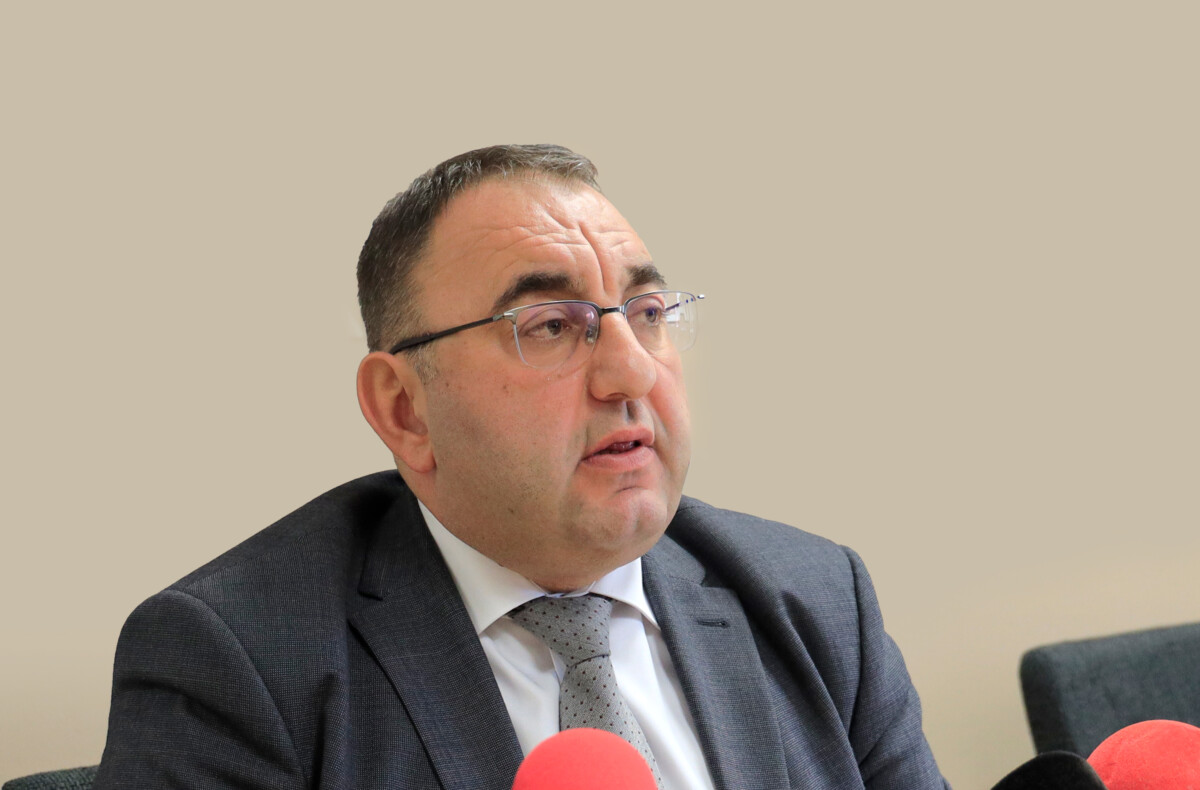"Warm water

A total of 60% is the loss of the water we drink at the national level. This means that from the source all the way to home when you turn on the tap to drink a glass of water, more than half the amount of drinking water has been lost along the way.
The data is overwhelming and a snapshot of our personal, political and institutional culture and attitude towards natural resources.
The direct occasion for this column was one Friday in February when we spent the whole day chasing the media and convincing them if and who requested an increase in the price of water for Skopje and what the decision would be and who would make it. (Then someone else is to blame for the fact that the citizens did not have confidence in the institutions when one says, I did not ask for an increase, I only submitted expenses, and the other, that is, we, publicly announce their requests.)
Undoubtedly, whether it is a question of a reduction or a possible increase of one or 100 denars, it is a matter of fair treatment towards consumers and transparency in making the decision, which also implies responsibility.
In a situation where the value of products and services are under the influence of inflation, which is a consequence of the energy situation and the conflict between Russia and Ukraine, every country, including ours, reacts with targeted measures to stabilize prices.
The question about the price is legitimate, but the essence is elsewhere – how did we get to the point where 60% of our drinking water is lost?
A little formal aspect in the formation of the price, although the society is saturated with procedures. But I want to explain the procedure, not to locate the culprit but to suggest a solution.
Each public utility company (PUC) submits a request for a price to the Energy Regulatory Commission, where the Vodi sector analyzes in detail the reported costs which are real and which are not, and then determines the so-called price range. This range implies minimum and maximum tariff, that is, how much can be reduced/increased as a minimum or how much can be reduced/increased as much as possible. These price proposals are finally voted on by the council of the municipality from which the public utility company submitted the request.
And what does practice show? The council of municipalities, which is made up of representatives from political parties or independent candidates who fight for a mandate every election, rarely makes a decision to correct the price of water, even if it is by one, two or ten denars per month, therefore that is unpopular.
It is understood that it is simpler and easier to construct a winning PR that the prices are the same, than to explain in an argumentative, transparent and accountable manner where the money from the increase of one, two or ten denars was invested.
And that is why expert determination of the final price is needed, for which RKE is available to take full responsibility. We are not fighting for the sympathy of the audience through price-political decisions, but we are fighting for a fair treatment of consumers and the service they receive.
If we were to determine the final price of water, without "ping-pong" maneuvers between PUC and municipal councils, where one asks, another proposes, and the third makes the final decision, RKE offers to be "blamed for everything".
This is a fairly obscene proposition, to be completely honest.
What will that mean?
First of all, it will mean that public utilities will not be factories for employment, and which mother has lost her child to find him there, but will be institutions that will work according to economic results. In addition, investments in the water supply infrastructure will be monitored, which means that we will not be brought to a situation, that is, our goal will be that there will be no news in the 21st century that a certain city has been left without water due to non-investment in the water supply infrastructure.
Here I would like to share a real situation, which resembles an anecdote. In one of the tourist places in the country, the council does not make a decision to increase the price, for the sake of the electorate, but for the residents and how it is disastrous, because in the height of the summer season, the place is without water for a week due to poor infrastructure. So the increase of 10 denars on the final bill, a decision that was not made "in the interest of the people", the residents overpaid by buying bottled water and canceling the tourist arrangements.
These are the key reasons why it is more than necessary to pass the appropriate legal amendments so that RKE can take the final decision on the price of water, and we are not inventing hot water with this, but adopting European practice.
It is patriotism to preserve natural resources and protect consumers, while the erosion of quasi-moralizing about who protected the people from price shocks has led us to a 60% loss of drinking water nationally.
We always remain on the side of consumers even when it was unclear why RKE wanted cheap electricity for hydrophores for all PUCs in the municipalities, cheap electricity that, truth be told, ESM provided. The goal was to cushion the price shock of skyrocketing stock prices for electricity on the exchanges, where every public utility company bought it.
Marko Bislimoski,
Chairman of the Energy and Water Services Regulatory Commission and Chairman of the Energy Community Board of Regulators


